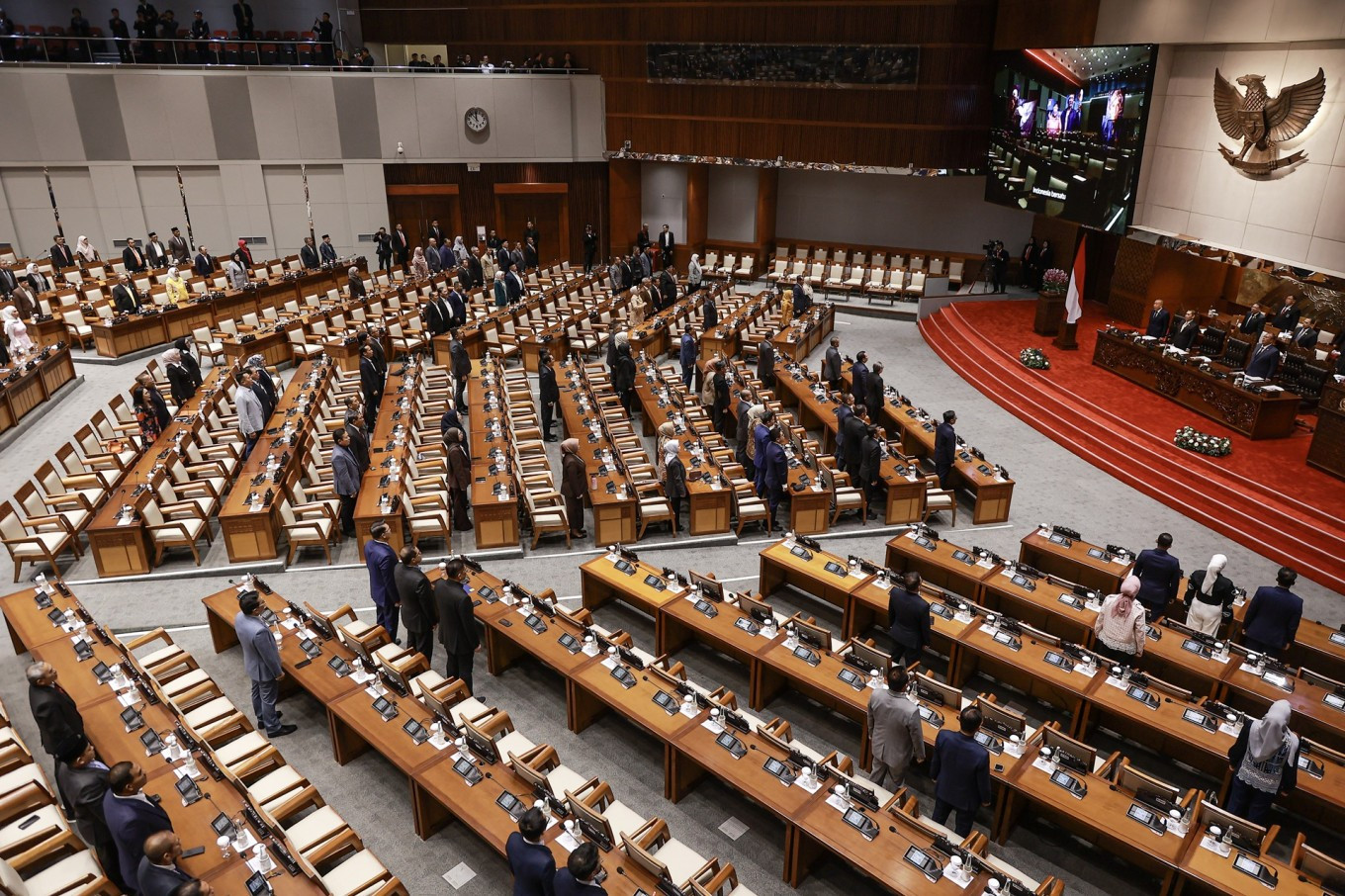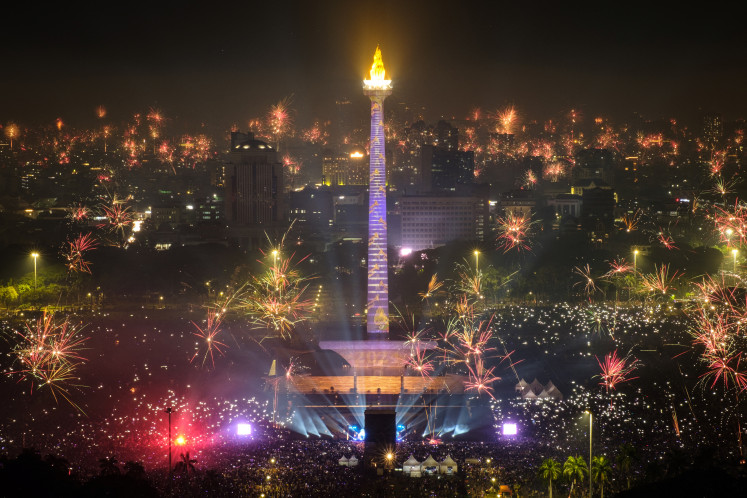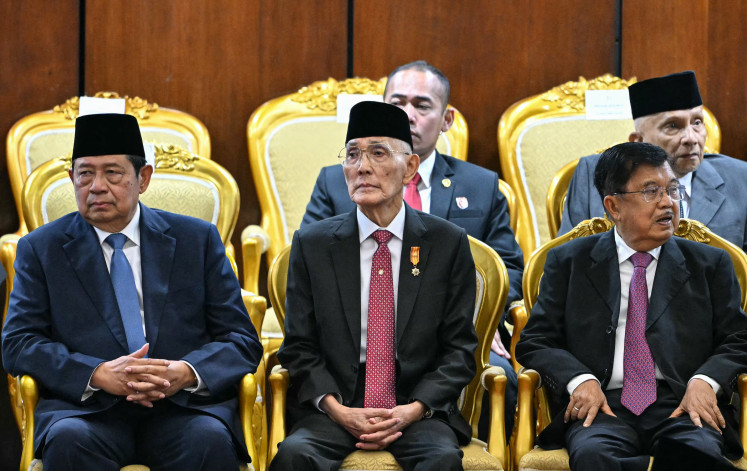Popular Reads
Top Results
Can't find what you're looking for?
View all search resultsPopular Reads
Top Results
Can't find what you're looking for?
View all search resultsLawmakers get allowance hike after protests against perks
Each lawmaker will now get Rp 700 million ($42,200) for each recess, up from Rp 400 million previously. All of the 580 lawmakers take approximately five breaks per year.
Change text size
Gift Premium Articles
to Anyone
T
he government has nearly doubled a key allowance for its lawmakers, an official said on Monday, one month after canceling some of the benefits given to lawmakers in an effort to assuage public anger following a series of violent demonstrations.
In August, thousands of students, rights groups, and other civilians joined protests against the government's spending priorities, including pay rises for lawmakers. The demonstrations later spiraled into riots after a motorcycle taxi driver was killed during a police operation.
The violence, which spread to 32 of the country's 38 provinces, resulted in 10 deaths and at least 5,000 arrests, making it the deadliest outbreak of unrest in the archipelago for over two decades.
The increase in the "recess allowance" for lawmakers - which is given to support their work in their constituencies while not in session - came into effect on October 3, at the start of the latest break, House of Representatives Deputy Speaker Sufmi Dasco Ahmad, also known as Dasco, told Reuters on Monday.
Each lawmaker will now get Rp 700 million ($42,200) for each recess, Dasco said, up from Rp 400 million previously. All of the 580 lawmakers take approximately five breaks per year.
Read also: Regional dissent boils over as fiscal transfer cuts bite
The allowance, which Dasco said had been approved by the finance ministry in May, is earmarked for visits and activities in electoral districts.
The August protests were sparked by anger at the perks available to politicians, with each lawmaker also entitled to an additional 100 million rupiah per month in housing and other allowances.
Following the unrest, some of the benefits were removed, cutting the total to 65.5 million rupiah.
While commodity-rich Indonesia is Southeast Asia's biggest economy and a member of the G20, the World Bank says tens of millions of Indonesians still live in poverty.
Dasco defended the increase, saying the last allowance was based on the 2019-2024 period and didn't take into account the subsequent rises in staple food prices and transportation costs.
"So this is not a raise, it's a policy decided by the house's secretariat after reviewing various kinds of aspects," Dasco said, adding the figure was not proposed by the house but the secretariat.
Dasco, who is also a senior politician in President Prabowo Subianto's Gerindra party, said the House was developing a digital reporting mechanism to ensure transparency, which will be open to the public.
"It's like Indonesians have been pranked," said Lucius Karus from Formappi, a non-profit parliamentary watchdog. "We were satisfied by the abolition of the housing allowance... but, in fact, another fantastic allowance has appeared."











